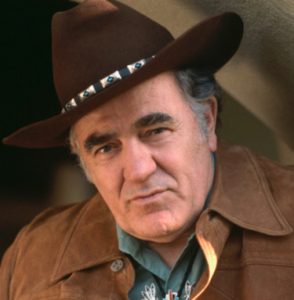Have you ever had the experience of buying a new car, then seeing your car everywhere on the road? How about you or your wife getting pregnant, and suddenly almost every woman seems to be pregnant?
Well that has happened to me recently. No, I’m not pregnant (nor is my wife), and I didn’t get a new car. My experience of what psychologists call the Baader-Meinhof phenomenon had to do with education. (The common term for this phenomenon is “frequency illusion.” I wrote about that back in July, 2020.)
First came a text from my friend Barry Landis. In it he pointed me to an article written by a friend of his and posted on LinkedIn. It started by talking about knowledge, but after two paragraphs he posited this idea.
[The] “missing link” in all systems of education known to civilization today, may be found in the failure of educational institutions to teach their students how to organize and use knowledge after they acquire it.
Barry suggested that post might be a topic for an article on Do Good U, and I tucked that away in a corner of my mind.
Second…
 I went to bed a couple of nights ago early enough to do some reading before sleeping. As it happens, the title of “the bedside book” I’m reading at the moment is Education of a Wandering Man. It was written by Louis L’Amour and published in 1989, the year after he died.
I went to bed a couple of nights ago early enough to do some reading before sleeping. As it happens, the title of “the bedside book” I’m reading at the moment is Education of a Wandering Man. It was written by Louis L’Amour and published in 1989, the year after he died.
Born in 1908, L’Amour was awarded an honorary PhD in 1972. It was the only way he would have received any degree. He left school at 15, halfway through the 10th grade. There were two reasons, the first being economic necessity. “More important,” he wrote, “was that school was interfering with my education.”
That was not a knock on schools.
No man or woman has a greater appreciation for schools than I, although few have spent less time in them. No matter how much I admire our schools, I know that no university exists that can provide an education; what a university can provide is an outline, to give the learner a direction and guidance. The rest one has to do for oneself.
Louis L’Amour’s education came in the form of books. He had a love of learning from the time he was young, and he read constantly. It is not a form of education he would recommend for everyone, but it was right for him.
Third…

When we started DGU we called ourselves a training company. One day I mentioned that to my friend, a top salesman for Xerox back in the day, and he protested. “You train dogs, not people.” Turns out that he believed sales training had held him back, much like Louis L’Amour believed school interfered with his education.
In reality we are not a training company, we are an education company. More in a minute on what that means for our clients.
For now, the realization that we were educators hit home for me a couple of weeks ago in a powerful way as I read The Abolition of Man by C. S. Lewis. One of his major themes, if not the major theme, was that modern education is failing us. That was written in 1943, and the trend he pointed to has not improved in the intervening 78 years.
As you probably know, education is a political hot button these days. It was likely the defining issue in the recent gubernatorial race in Virginia, and it will be an issue (in several ways) in the 2022 mid-term elections.
I decided this wasn’t frequency illusion, this was “education” smacking me in the face and saying “write about me.” So here we are.
Measuring education
 When Louis L’Amour died, all 89 of his novels were still in print. So were his two full length non-fiction works and his 14 collections of short stories. His sales had already topped 200,000,000 books.
When Louis L’Amour died, all 89 of his novels were still in print. So were his two full length non-fiction works and his 14 collections of short stories. His sales had already topped 200,000,000 books.
If you measure education by financial or business success, Louis L’Amour’s education — not much school — was absolutely perfect for him. You might say the same thing for Steve Jobs, Larry Ellison, and Bill Gates, all of whom dropped out of school.
One of the schools from which Ellison did not graduate (but did attend) is the University of Chicago. Robert M. Hutchins, who thought and wrote as much as anyone about education, became the president of that institution in 1929. He was just 30 years old.
Not only did Hutchins not drop out of school, he thrived there. After serving two years in WW I he completed his education at Yale, then went to Yale Law (graduating at the top of his class), and two years later became Dean of the Law School. He was also Chairman of the Board of Editors of Encyclopædia Britannica from 1943 to 1974.
He said:
It must be remembered that the purpose of education is not to fill the minds of students with facts… it is to teach them to think.
He went on to say that the educational system as a whole wasn’t there “to produce hands for industry or to teach the young how to make a living. It is to produce responsible citizens.”
Measures that matter
Many have attempted to measure education — or at least knowledge — with IQ tests. Having a high IQ is probably an asset, but only in the same way being tall is an asset to a basketball player. There are many other factors to be considered.
The education we bring to our clients isn’t about intelligence or technical skills. It is about decision making and careful thinking.
We focus on EQ (also called EI – Emotional Intelligence), Cultural Intelligence, and Social Intelligence. All of those are measurable and have a very real impact on the bottom line of any company.
To put it simply, we are an education company because we teach businesses and their employees how to do good. And that is something we should all learn.
Do good. It’s in you.

One Response
Well stated my friend.
Keep up the good writing.
Our education system needs to read this and teach our kids how to do good and why it’s important.